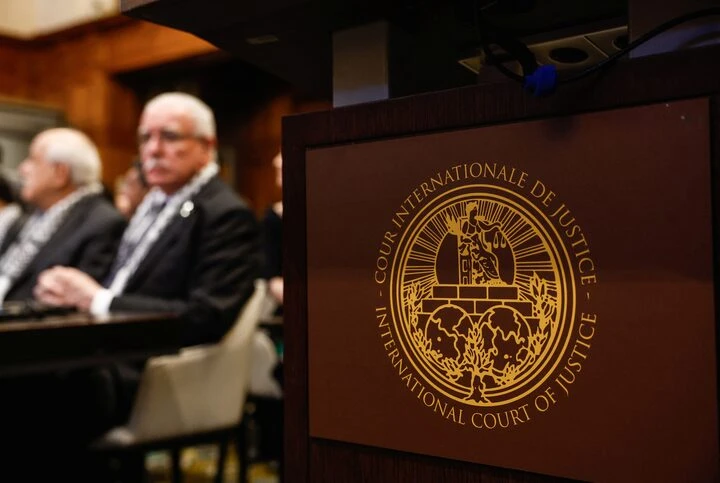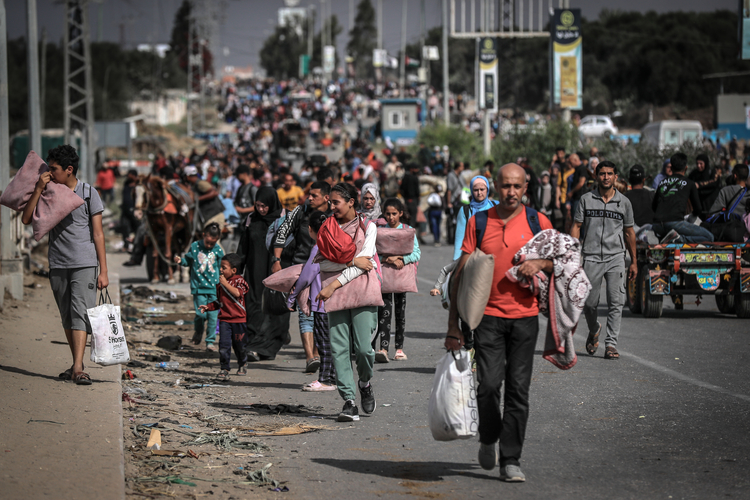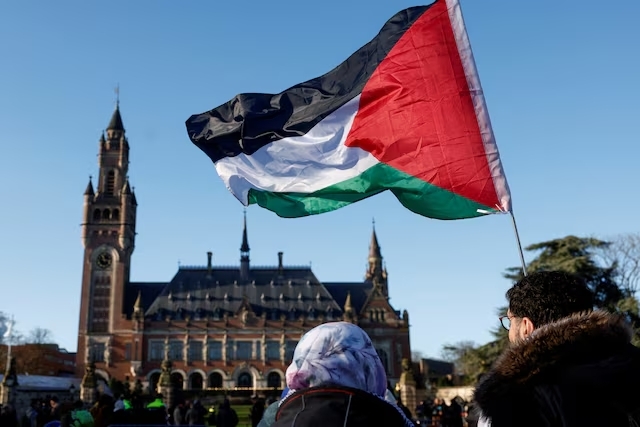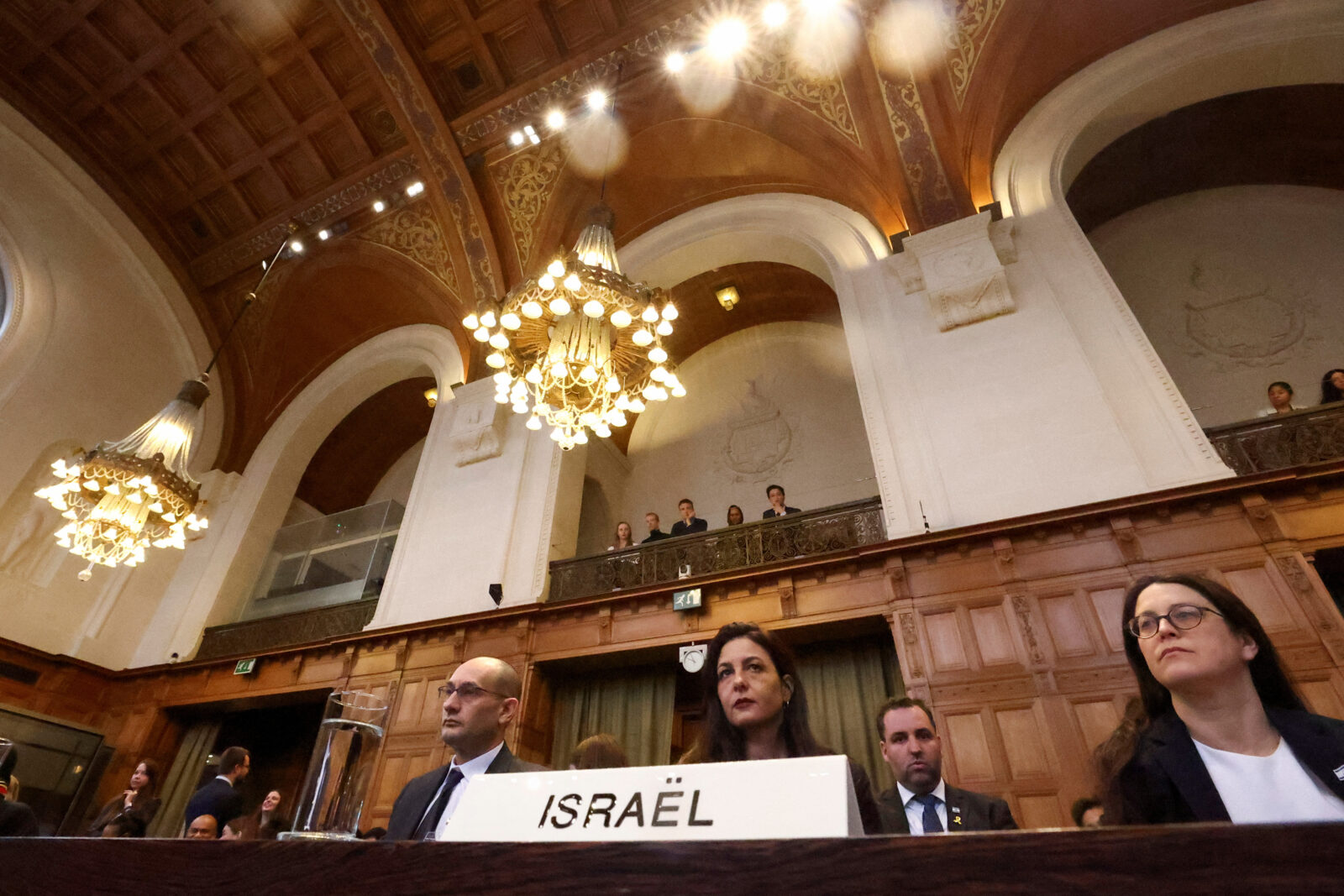Israel lobbies US Congress to press South Africa to drop genocide case at ICJ
 International Court of Justice (ICJ) holds a hearing to allow parties to give their views on the legal consequences of Israel's occupation of the Palestinian territories before eventually issuing a non-binding legal opinion in The Hague, Netherlands, February 19, 2024. (Reuters Photo)
International Court of Justice (ICJ) holds a hearing to allow parties to give their views on the legal consequences of Israel's occupation of the Palestinian territories before eventually issuing a non-binding legal opinion in The Hague, Netherlands, February 19, 2024. (Reuters Photo)
Israel is pushing members of the U.S. Congress to influence South Africa’s decision to continue legal proceedings against it at the International Court of Justice (ICJ) over the war in Gaza, according to an Israeli Foreign Ministry cable obtained by news channel Axios.
Issue at hand
South Africa has until October 28 to submit its arguments to the top U.N. court regarding its case against Israel, accusing it of violating the Genocide Convention during the Gaza conflict.
South Africa’s legal claim stems from its accusation that Israel’s actions are “genocidal in character” and aim to destroy a significant portion of the Palestinian population in Gaza. Israel strongly rejects these accusations.
Israel’s diplomatic campaign against ICJ
In recent weeks, the Israeli Foreign Ministry initiated a diplomatic effort to halt South Africa’s push at the ICJ. According to an Israeli cable, this campaign includes lobbying members of Congress to pressure South Africa into dropping the case.
Israeli officials are keen for the U.S. Congress to signal to South Africa that continuing this legal action could lead to “consequences.” They hope the new coalition government in South Africa will alter its stance on Israel and the Gaza conflict.

Background of ICJ’s Israel case
South Africa filed its case at the ICJ in late December 2023, alleging that Israel’s actions in Gaza violated its obligations under the 1948 Genocide Convention. The claim accuses Israel of conducting operations with genocidal intent against the Palestinian population.
In May, the ICJ issued provisional orders instructing Israel to cease military actions in the southern Gaza city of Rafah, but the court has yet to discuss the genocide accusations in depth.
Türkiye also joined the case against Israel at the ICJ. Turkish Foreign Ministry Spokesperson Oncu Keceli also announced that Türkiye has submitted an application for intervention in the genocide case against Israel at the ICJ.
Keceli stated that the application has been prepared in an extremely comprehensive and detailed manner, and it is based on Article 63 of the Court’s Statute.
“No country in the world is above international law,” Keceli said, emphasizing that the case before the ICJ is important to ensure that Israel’s crimes do not go unpunished.

Israeli pressure on US Congress
On Monday, the Israeli Foreign Ministry sent a classified cable to the Israeli Embassy in Washington, D.C., and to Israeli consulates across the U.S., outlining their strategy. The cable urged diplomats to work with U.S. lawmakers at both federal and state levels, as well as Jewish organizations, to pressure South Africa.
“We are asking you to immediately work with lawmakers on the federal and state level, with governors and Jewish organizations to put pressure on South Africa to change its policy towards Israel and to make clear that continuing their current actions like supporting Hamas and pushing anti-Israeli moves in international courts will come with a heavy price,” the cable stated.
Israeli efforts to influence South Africa
Israeli diplomats were instructed to lobby U.S. Congress to issue public statements condemning South Africa’s actions and emphasize the potential consequences of suspending U.S. trade relations with South Africa. However, such actions are unlikely to materialize as the U.S. is keen to maintain its relationship with South Africa to counterbalance Russian and Chinese influence in Africa.
Additionally, Israeli diplomats were advised to ask U.S. Congress members and Jewish organizations to reach out directly to South African diplomats and communicate that South Africa could face significant repercussions if it does not shift its policy.

Legislative and public relations push
The cable also outlined a strategy for Israeli diplomats to push for hearings on South Africa’s policy toward Israel in U.S. state legislatures and to promote legislative measures against South Africa, even if they are unlikely to pass.
According to the document, these moves are intended to exert public pressure on South Africa. Furthermore, Israeli diplomats were instructed to publicize these diplomatic efforts through U.S. media and social media platforms.
Political dynamics in South Africa
The case against Israel comes amid significant political changes in South Africa. In June, a multiparty coalition government was formed, following the African National Congress (ANC) losing its 30-year majority rule. Israeli diplomats were told to highlight this shift and encourage dialogue with Israel, emphasizing that the ANC has an opportunity to alter its approach towards Israel.
The Israeli Foreign Ministry declined to comment on the matter. The South African embassy in Washington, D.C. did not respond to requests for comment.



